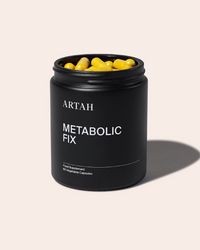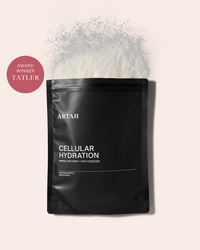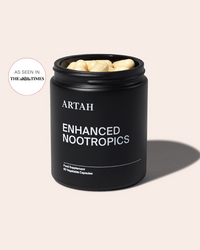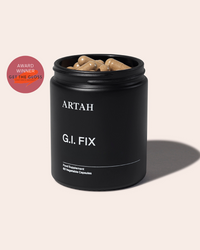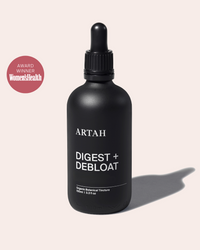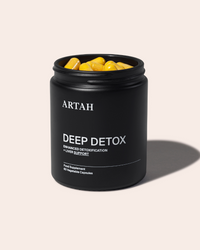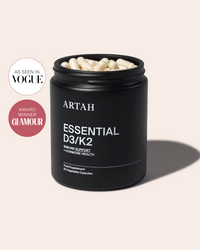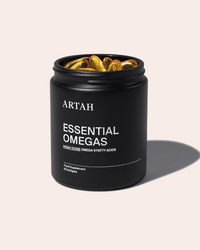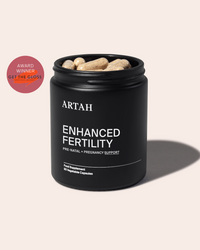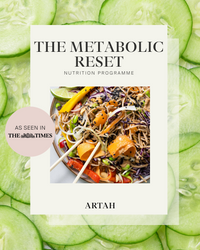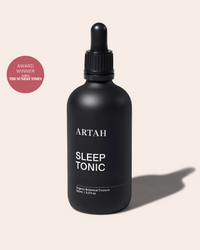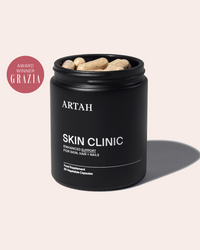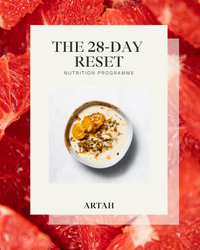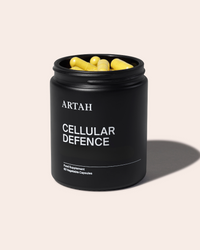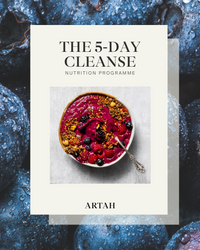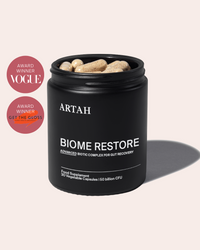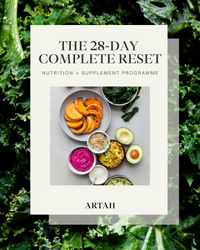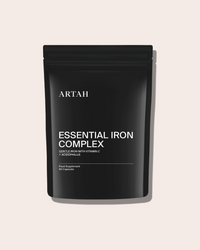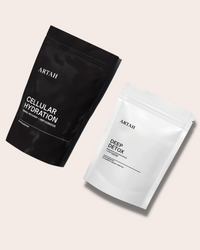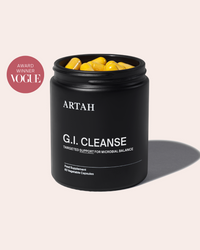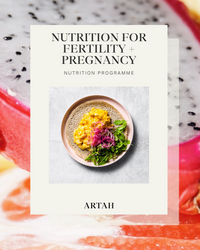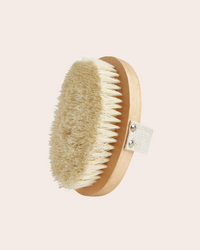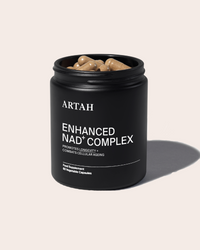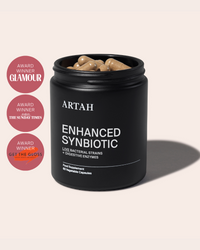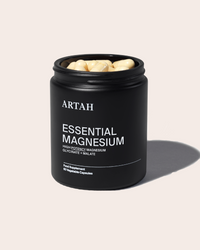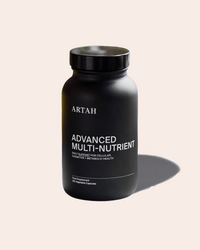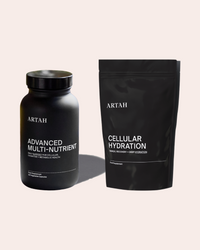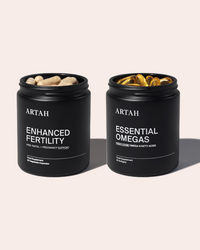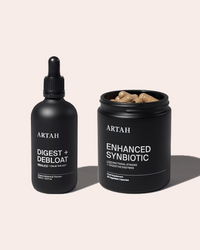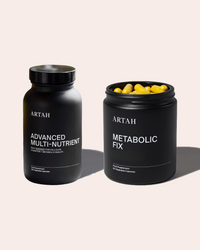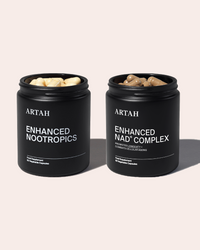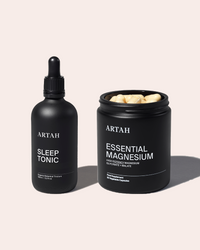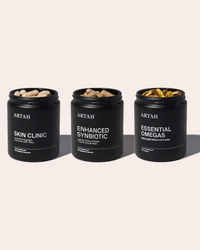Understanding The Gut-Brain Connection
Our microbiome is made up of trillions of bacteria, viruses and fungi. Whilst these microbes can be found in various parts of the body, think of the gut as their hub; the densely populated area in which most of the metabolic activity takes place. The microbiome and its metabolites influence hormones, immunity, metabolism, mood, longevity and more. In addition to the microbiome, our vagus nerve is another key player in the gut-brain connection. The vagus nerve, one of our 12 cranial nerves, is part of our parasympathetic nervous system (the ‘rest and digest’ arm of our nervous system) and innervates the gut, forming a bidirectional communication system between our gut and brain. When it comes to how our gut influences our emotional well-being, we can divide it up into three categories. Here's what you need to know.
IT MAKES NEUROTRANSMITTERS
Neurotransmitters are the chemical messengers that help regulate mood, memory, learning, appetite, the sleep-wake cycle, motivation, stress and more. Over 90% of serotonin and 50% of dopamine are produced in the gut, alongside GABA and acetylcholine. For this to run smoothly, we need a diverse and healthy microbiome, so it’s no surprise individuals with IBS have a higher prevalence of anxiety, as revealed by a 2023 study. The study looked at 1.2 million patients with IBS over a three-year period and found that 38% had anxiety and more than 27% had depression; both figures are double the rate of anxiety and depression found in those without IBS. (1)
IT SENDS INFO TO THE BRAIN
As a part of the PNS, the vagus nerve encourages digestion, recovery and repair. It helps regulate the motility of the gut and supports the digestive process by increasing blood flow and gastric secretions. When our stress response is activated, our body redirects energy to what we need for the ‘fight or flight’ response and opposes the action of the vagus nerve, essentially switching off the gut. This ‘top-down’ communication has an enormous impact on our gut health, but surprisingly, 80% of nerve fibers actually run from the gut to the brain, so what happens in the gut has an enormous influence on the brain. When our gut health is poor, this ‘bottom-up’ communication can induce our stress response, contribute to inflammation, and causes symptoms like poor concentration, brain fog, anxiety and more.
IT PRODUCES POSTBIOTICS
The health and composition of our microbiome is an important mediator of metabolic messengers known as postbiotics. When the microbes in our gut metabolise fibre and phytonutrients from the food we eat, they produce various postbiotics which then enter our metabolism to influence a whole host of processes. Short chain fatty acids, for example, are produced from the breakdown of fibre, and have a variety of benefits; they’re anti-inflammatory, anti-diabetic, neuroprotective, anti-carcinogenic, and regulate immunity, which – in addition to its role in hunger, stool volume, and blood sugar control – is why fibre is so essential for our health. Phytonutrients behave in the same way; curcumin, for example, is the main polyphenol in turmeric. It resists digestion and arrives to the gut intact to be metabolised by our microbes, which transform it into more bioactive metabolites. These byproducts of bacterial metabolism play a key role in inflammation, metabolic control, detoxification and longevity. (2) On the other hand, when our microbiome is imbalanced and we have more pathogenic bacteria than beneficial bacteria, the harmful bacteria can produce compounds that harm our health, like lipo-polysaccharides (LPS) and pro-inflammatory cytokines. These compounds have toxic effects on various aspects of our physical and emotional health through their influence on inflammation, metabolism, neurological function and more.
OUR TOP FIVE TIPS: HACKING THE GUT-BRAIN CONNECTION
1. Focus on diversity: getting over 30 different plant foods per week will help encourage bacterial diversity in the gut. It may sound daunting, but it’s not as challenging as you may think; vegetables, fruit, herbs/herbal teas, spices, nuts, legumes, beans, seeds, pseudograins and grains all count towards your goal. Try to front-load your week with diversity by including some easy meals that help get your numbers up, like traybakes, dahl, soups, stir-fries and smoothies.
2. Target harmful bacteria. An imbalance of gut bacteria, also known as dysbiosis, underpins countless symptoms and illnesses. From poor blood sugar control, UTIs and anxiety to type two diabetes, allergy and autoimmunity, the health of our microbiome plays a role. To target harmful bacteria, try introducing a natural anti-microbial like GI Cleanse, which contains clinically proven antibacterial, antifungal and antiparasitic herbs that selectively target the bad bacteria whilst promoting the good.
3. Work on vagal tone. Stimulating the vagus nerve is an essential part of our emotional wellbeing toolkit, and it’s easier than you think. All the things that reduce stress will essentially help improve vagal tone, but specific steps you can take include breathing exercises, meditation, chanting (or singing/humming), cold showers and walking are all ways you can stimulate the vagus nerve.
4. Gut + mood-boosting supplements. Biome Restore is our go-to for restoring the gut-brain axis. It includes probiotic strains that been shown to increase GABA, serotonin, and improve mood, like Lactobacillus rhamnosus GG, alongside Lion’s Mane, a nootropic mushroom with multiple benefits in the gut and brain. It has been shown to inhibit pathogenic bacteria like E.Coli and H. Pylori (4), improve anxiety and sleep (5), and protect against neuroinflammation.
5. Remove ultra-processed foods. UPFs can be particularly damaging to our gut-brain axis. Their flavour profile, which is a specific blend of sugar, salt, fat and chemical flavourings, elicit feelings of anxiety, stress, agitation, anger, and light up the same neural pathways associated with addiction. They also contain emulsifiers and preservatives that have been shown to directly alter the composition of our gut bacteria and promote inflammation. (6)
References
1.Tarar ZI, Farooq U, Zafar Y, Gandhi M, Raza S, Kamal F, Tarar MF, Ghouri YA. Burden of anxiety and depression among hospitalized patients with irritable bowel syndrome: a nationwide analysis. Ir J Med Sci. 2023 Oct;192(5):2159-2166.
2. Jabczyk M, Nowak J, Hudzik B, Zubelewicz-Szkodzińska B. Curcumin and Its Potential Impact on Microbiota. Nutrients. 2021 Jun 10;13(6):2004.
3. Tette FM, Kwofie SK, Wilson MD. Therapeutic Anti-Depressant Potential of Microbial GABA Produced by Lactobacillus rhamnosus Strains for GABAergic Signaling Restoration and Inhibition of Addiction-Induced HPA Axis Hyperactivity. Curr Issues Mol Biol. 2022 Mar 22;44(4):1434-1451.
4. Wang G, Zhang X, Maier SE, Zhang L, Maier RJ. In Vitro and In Vivo Inhibition of Helicobacter pylori by Ethanolic Extracts of Lion's Mane Medicinal Mushroom, Hericium erinaceus (Agaricomycetes). Int J Med Mushrooms. 2019;21(1):1-11.
5. Nagano M, Shimizu K, Kondo R, et al. Reduction of depression and anxiety by 4 weeks Hericium erinaceus intake. Biomed Res. 2010;31(4):231-237
6. Naimi S, Viennois E, Gewirtz AT, Chassaing B. Direct impact of commonly used dietary emulsifiers on human gut microbiota. Microbiome. 2021 Mar 22;9(1):66.






